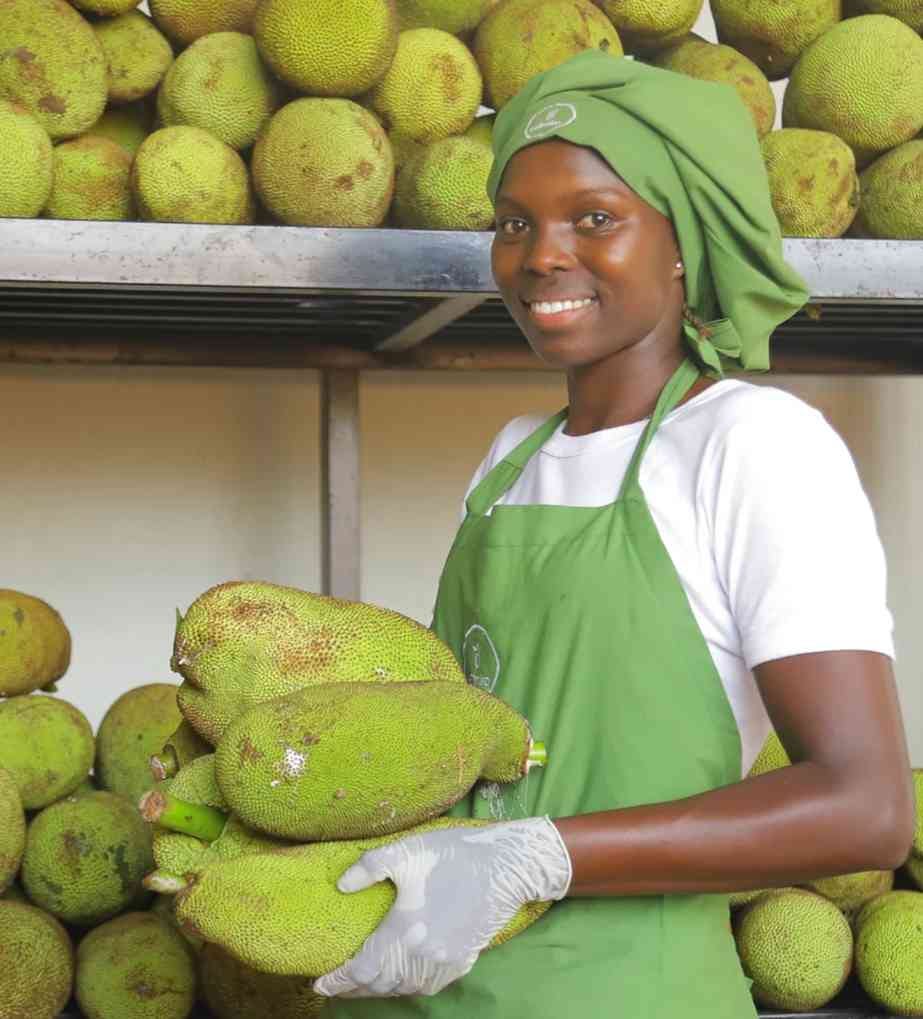World’s First Approval for Cultivated Beef, Chocolate Made From Air, and Jackfruit-Based Meat
Also: The rise of 'substitarians'
Hi, thanks for being here!
I hope you’re having a great day. Don't forget to keep yourself hydrated! 💦
Alright, let’s dig in.
BIO BUZZ
🇮🇱 Israel’s Aleph Farms receives world's first regulatory approval for cultivated beef
The company's product, Aleph Cuts, received a 'no questions' letter from the Israeli Ministry of Health, a similar endorsement to the FDA's in the US, allowing them to market their cultivated beef products in Israel.
This approval makes Israel the third country, after Singapore and the U.S., to greenlight cultivated meat. However, previous approvals in these countries were for cell-based chicken products, marking Aleph Farms' product as unique in being cultivated beef.
Aleph Farms' hybrid meat, blending cell-cultured beef from unmodified Black Angus cow cells with plant proteins, is produced in an antibiotic-free, aseptic environment. The product is priced similarly to premium conventional beef.
Read full article - Green Queen
🇬🇧 Multus opens the “world's first” commercial-scale facility for affordable, serum-free growth media for the cultivated meat industry
Developing growth media without fetal bovine serum (FBS), a traditionally essential but controversial ingredient for cell growth, has been a complex, expensive, and time-consuming task that has delayed industry progress.
Companies can now outsource the production of serum-free growth media. It enables faster market entry for products while channelling their resources into innovation and product development.
Additionally, it offers economies of scale to firms producing their growth media, ensuring a consistent and reliable supply essential for large-scale production.
Read full article - vegconomist
🥛 Imagindairy acquires an industrial-scale production plant, boosting its production capacity to 100,000 litres of animal-free dairy proteins
The Israeli precision fermentation startup plans to 3x this volume in the next 1-2 years. The company claims to be the first in the industry to fully own and operate such large-scale production lines.
Imagindairy’s AI-led microflora-based beta-lactoglobulin production method, approved by the FDA, feeds microorganisms (commonly known as koji mould) that are 20x more efficient than cows in converting feed into proteins.
Imagindairy's strategic shift from contract manufacturing to operating its own facility marks its focus on commercialisation. The company plans to launch its animal-free dairy products this year, aiming to offer cost-competitive options compared to conventional dairy.
Read full article - Green Queen
🇳🇿 Daisy Lab has successfully produced animal-identical whey proteins in 10 L fermenters, marking a significant scaling milestone
The New Zealand-based precision fermentation biotech’s platform can produce 10 g of protein per litre of growth medium, exceeding its initial goal of 3 g. This yield allows the use of traditional dairy equipment for protein powder production.
Daisy Lab's advancements offer an alternative to traditional dairy processing, which is very relevant for New Zealand, where ~50% of the country's emissions come from animal agriculture, including dairy.
The company aims to increase protein yield further, targeting 20–30 g/L. They are also researching other cow's milk proteins, such as casein and lactoferrin, for use in products like baby formula and sports supplements.
Read full article - vegconomist
🍫 Solar Foods partners with Fazer Group to launch chocolate snack bar made with air protein in Singapore
The snack bar, named "Taste the Future," marks Solein's (Solar Foods’ protein) retail debut in Singapore. The vegan snack bar contains Nordic oat puffs and 2% Solein powder. It is produced without palm oil and uses 100% responsibly sourced cocoa.
Fazer, a major stakeholder in Solar Foods, hosted a media tasting and public sampling event for the "Taste the Future Chocolate Snack Bar". Singapore was selected due to its innovative food ecosystem and the population's openness to novel, nutritious, and sustainable food options.
Solein is produced to minimise land, water, and chemical usage, emitting only 1% of GHG compared to conventional meat. Its nutritional profile is comparable to dried soy or algae, containing high protein, essential fats, dietary fiber, minerals, iron, and B vitamins.
Read full article - Green Queen
🇨🇭🇯🇵 Planetary partners with Konica Minolta to reduce the production costs of fermented proteins like dairy, egg, fats, and mycoproteins
The collaboration aims to merge Konica Minolta's image-sensing and AI-driven bioprocesses to enhance real-time fermentation monitoring. This integration could lower production costs by 20–30% and minimise batch failures. The goal is to make these products price-competitive with other products on the market.
Planetary offers comprehensive biomanufacturing solutions, including onboarding, upscaling, processing, and product formulation. It aims to support the biotech industry with a global network of automated production plants and IP services.
Konica Minolta, the Japanese imaging technology leader, is expanding from its traditional expertise in imaging and optical devices into the fermentation industry, introducing advanced sensing technologies and AI solutions.
Read full article - vegconomist
📈🌱 Despite media reports suggesting a decline in veganism, some companies in the UK and Europe report an increase in plant-based sales
Sodexo UK & Ireland reported that meat-free meals made up 11% of their total sales in 2023, up from 10% in 2022. In specific regions like the East Midlands, this figure rose to 19%, and in London, it was 15%.
The increasing preference for meat-free options is evident from Sodexo's sales data and its commitment to expanding plant-based meal options. This trend reflects a significant shift in consumer awareness towards plant-based diets.
Planthood's 500% increase in new customers and consistent annual growth of 400%, Tereos' 50% sales growth, and SHICKEN's anticipated fivefold growth demonstrate the strengthening of the plant-based food market.
Read full article - vegconomist
🤝 IFF partners with Unilever, Wageningen University & Research to improve the flavour of plant-based meat alternatives
The project's goal is to explore how flavours interact with protein molecules in meat alternatives, striving to develop flavouring strategies that improve the sensory experience of these products.
This initiative aligns with the shared objective of IFF, Unilever, and WUR to improve consumer experiences with plant-based foods and support a shift towards more sustainable and accessible plant-based diets.
IFF has a history of developing plant-based solutions. Unilever, with its range of plant-based products and a sales target of €1.5 billion in this sector by 2025, and WUR's expertise in alternative protein research, bring significant experience to this collaboration.
Read full article - vegconomist
🍔 Europe continues to be Beyond Meat’s strongest market amid US sales decline
The company has higher demand in Europe, particularly for its plant-based burgers and nuggets at McDonald’s, which are not sold in the US. This led to a 39% increase in international retail sales and a 79% jump in international foodservice sales.
Beyond Meat has shown strong ambitions for growth in Europe, demonstrated by the creation of a new position, General Manager of Europe, and expansion into various European countries like the UK, Germany, the Netherlands, and more.
Beyond Meat recently launched a marketing campaign in the UK, coinciding with Veganuary. This campaign, featuring TikTok comedy star Luke Vernon, aims to challenge misconceptions about vegan food and promote its products.
Read full article - vegconomist
MACRO STUFF
🇨🇭 Over half of Swiss consumers are now 'substitarians', consuming plant-based alternatives to meat, dairy, and seafood
The survey by Coop Switzerland shows 58% of people are reducing their intake of animal-sourced foods. While 65% still consume cheese, 62% meat, and 55% milk several times a week, these figures represent a decrease of 2% to 3% from the previous year.
The ‘substitarian’ group, making up 56% of the Swiss population, includes those who regularly consume plant-based meat, seafood, and dairy. The demographic is predominantly young, urban, and nearly evenly split between genders.
Climate change is the primary motivator for Swiss people adopting plant-based diets, cited by a majority of flexitarians, substitarians, vegetarians, and vegans. Animal welfare and health are other significant factors, with price becoming increasingly important due to high inflation.
Read full article - Green Queen
🇯🇵 Japan is shifting its approach to novel foods, including cultivated meat, by redistributing responsibilities among different organisations
The Ministry of Health, Labour, and Welfare (MHLW) and the Food Safety Commission (FSC) are the main bodies involved, with MHLW managing risk and hygiene and FSC focusing on risk assessment. No specific laws currently regulate the sale of cultivated meat in Japan.
The MHLW will transfer its food hygiene standards division to the Consumer Affairs Agency (CAA), under the Cabinet Office. From April 2024, companies must engage with both the FSC and CAA for food safety matters.
Prime Minister Fumio Kishida's administration, particularly through the CAA under the Cabinet Office, is taking a more active role in food safety. This involvement is seen as an opportunity for increased support and development of the cultivated meat sector, including safety assurance and labelling rules.
Read full article - vegconomist
💪🏾 Established food giants are expected to dominate the US plant-based meat market, outperforming exclusively plant-based brands
Major food companies like Kellogg Co., Maple Leaf Foods, Kraft Heinz, and Conagra are using their extensive sales channels, distribution networks, and brand recognition to dominate the plant-based meat market. This trend is likely to continue as these companies can produce high volumes at lower prices.
Projected to grow at a CAGR of 23.9% from 2023–2030, the US plant-based meat market is witnessing a significant shift. Established food companies are increasingly outperforming exclusively plant-based brands and startups, leading to market consolidation and posing challenges for smaller companies.
Smaller plant-based firms are turning to partnerships, mergers, and acquisitions for survival. Adapting through collaboration, embracing food tech advancements, and capitalising on reduced production costs are key strategies for staying competitive in the evolving market.
Read full article - vegconomist
📉 Republicans in Arizona have proposed two new bills prohibiting the “misbranding” of meat alternatives and banning cultivated meat entirely
HB 2244 seeks to prevent the misbranding of plant-based and cell-cultured products as meat. HB 2121, on the other hand, aims to ban the sale and production of cultured meat products, citing public health concerns and protecting the state's cattle industry.
HB 2244 mandates clear labelling for non-livestock or poultry products, prohibiting them from being labelled as meat. It enforces this through health department penalties of up to $100,000 per violation, aiming to ensure consumer clarity rather than outright banning alternative meats.
HB 2121 proposes a complete ban on cultured meat sales and production to protect Arizona's cattle industry and heritage. It includes hefty civil penalties and legal action against cultured meat companies, reflecting a protective stance towards traditional ranching and livestock industries.
Read full article - Green Queen
🥩🌱 Blended meat, combining plant-based and animal meat, could face challenges due to consumer preferences and quality perception
Meat lovers often view pure meat as high-quality. Plant-based consumers, choosing their diet for health, ethical, or environmental reasons, see the addition of animal protein as diluting their value proposition.
Consumers enjoy a mix of plant-based and animal-based foods but prefer personalising their choices according to specific occasions and preferences. The idea of a standard blended product like a burger patty might not satisfy these diverse, personalised needs, making it challenging for such products to appeal broadly.
For blended meat products to succeed, a consumer-centric approach is key. Potential strategies include leading with flavour, such as adding unique plant ingredients for an enhanced taste profile, and focusing on better nutrition without compromising taste.
Read full article - Green Queen
New here? Devour the free subscription and join a list of founders, investors, and biotech enthusiasts leading the food revolution!
BIO BUCKS
🇺🇬 Fiber Foods, specialising in jackfruit meat alternatives, receives funding from FoodSparks by PeakBridge and EIT Food
The Uganda-based company is a women-led business with a mission to create a scalable and gender-friendly value chain for jackfruit. The company emphasises fair wages and sustainable practices, aiming to create economic, social, and environmental value.
The company, with the technical support of the Dutch company Team Tastemakers, developed its first dried jackfruit product, PrimeJack. This product was introduced in the Netherlands in 2021, targeting the growing demand for plant-based foods in food service operations.
PrimeJack, a versatile and affordable meat alternative, is high in fiber and low in calories. It is said to closely resemble the texture and structure of real meat.
Read full article - vegconomist
🇮🇱 Mediterranean Food Lab (MFL) secures $17M series A funding to advance its AI-powered solid-state fermentation technology
The Israeli startup uses a blend of solid-state fermentation and AI-driven analysis to produce clean-label savoury ingredients, enhancing the flavour of plant-based foods.
The process involves initial fermentation using microbes on substrates like grains or legumes, followed by a secondary fermentation stage using enzymes that are produced as biocatalysts.
MFL's ingredients are regulated as 'foodstuffs' in the EU and food ingredients in the US, offering a clean label alternative to conventional flavour additives. The process avoids synthetic components found in typical 'natural flavours', instead providing transparently sourced ingredients like 'fermented chickpea'.
Read full article - AgFunder
🇦🇺 v2food acquires the plant-based ready meal brand Soulara, aiming to expand into D2C sales
Soulara offers convenient, ready-to-eat meals delivered to consumers. The acquisition will help v2food, an Australia-based alt meat manufacturer, venture into direct-to-consumer sales, a new channel beyond its existing retail and food service.
Soulara will be integrated into v2food under the newly formed entity 'Flexitarian Meal Solutions', which also includes MACROS, a fitness-focused meal brand owned by v2food.
v2food's CEO Tim York stated the consumer's desire for more plant-based options, noting that Soulara's inclusion in their portfolio demonstrates how easy and tasty reducing meat consumption can be.
Read full article - vegconomist
🧃 Better Juice secures series A funding to transform up to 80% of sugars in fruit juice into dietary fibers and non-digestible sugars
The Israeli food tech's clean-label conversion process flows juice through a bioreactor containing immobilised beads of non-GMO microorganisms, reducing sugar levels by 30-80% and increasing dietary fiber.
The business model can be compared to a Nespresso machine, where customers buy enzyme beads every two months, ensuring a continuous supply and consistent sugar reduction in juices.
The collaboration with Ingredion, a global ingredient giant, is in its preliminary stages (Ingredion Ventures led this series A round). This partnership aims to offer the sugar reduction solution to customers worldwide and enhance Ingredion's portfolio of sugar reduction solutions.
Read full article - AgFunder
SOCIAL FEAST
🧠 Good Judgement: Angel investor shares the #1 trait he looks for in a founder
Effective founders are required to make numerous daily decisions with finesse, balancing risks, rewards, and interpersonal dynamics, making judgement a key skill in their success.
While valuing persistence, Ryan warns against narcissistic or unreasonable persistence in founders, emphasising the importance of discernment and respecting boundaries, especially in team interactions.
Ryan criticises the "move fast and break things" approach, advocating for building businesses that prioritise mental health, ethical practices, and environmental sustainability, using good judgement as the guiding principle for future investments.
“There’s no exit big enough to justify ruining people’s mental health (customers or employees), making unethical decisions, or destroying the environment.”
Read full post on LinkedIn - Ryan Grant Little
💰 Consumer spending drives 70% of the US economy, but investing in food CPG is tough. Here is what investors need to know:
Food CPG growth is slower compared to tech, as establishing consumer habits takes time. However, once these habits are formed, they tend to stick, leading to sustained customer loyalty.
Investing in CPG at the seed stage carries the same risk as tech but without the 50x to 1000x upside. Nonetheless, the sector offers better liquidity in middle markets and quicker exits, though most investments might not yield high returns.
A robust supply chain and a clear path to healthy gross product margins are critical for success in the food CPG. High capital investment is needed, especially in early stages, with a focus on maintaining a healthy capital efficiency ratio.
“Like tech, CPG focuses on creating and changing habits. But customers are more adventurous with apps on their phone than food on their shelves.”
Read full post on LinkedIn - Daniel Gluck
🍴 Eating meat for the first time in over 10 years, CEO of Cellular Agriculture Australia shares his experience trying cultivated meat
~20 people sampled two products by Magic Valley: a cultivated pork dumpling in soy and chilli sauce and a Moroccan lamb meatball in tomato sauce. Sam found both dishes to be exceptionally delicious, highlighting the authentic flavours, textures, and culinary experience they provided.
The cultivated pork dumpling was described as having a tender, chewy texture with a distinct pork flavour and a lingering umami taste. The Moroccan lamb meatball impressed with its meaty texture, rich lamb flavour, and harmonious blend with Moroccan spices and tomato sauce.
The cultivated meat industry, represented by companies like Magic Valley, faces three primary challenges: creating delicious products (Magic Valley has done this), pricing them accessibly for most consumers, and proving their technology's benefits for people and the planet.
“I believe that cultivated meat can not only be produced ethically but can lead to many other benefits to people and our planet. Ethics were my main initial driver away from consuming animal products and with that removed, especially based on the approach Magic Valley takes, I was very comfortable with the concept of eating the products.”
Read full article on LinkedIn - Sam Perkins
Got a taste for this newsletter? Dish it out to your friends!👇🏾
EAR FOOD
As you probably noticed, there's been so much happening this week! Let’s give our ears a break. 🧘🏾♂️
Check back next week for podcast recommendations!
SPOTLIGHT: Food Jungle
😋 Hungry for weekly updates on the broader food industry?
As a food biotech nerd, sometimes I crave a broader view of the food industry. That’s why I want to take a moment to introduce a food industry newsletter I've grown to love and now wholeheartedly recommend to you: Food Jungle.
Food Jungle serves up a mix of insightful and lighthearted content, making complex topics in the food world accessible and engaging. What type of content can you expect? Here are the topics from Food Jungle’s latest edition:
🐕️ Dog meat gets banned in South Korea.
🐟️ The UK government gets tough on fishing laws.
👩🍳 A chef’s empire begins to slowly crumble in the US.
☕️ Starbucks gets grilled by American consumers.
🐝 It turns out, you don’t need bees to make honey…
Interested? Head over to Food Jungle!
*This is not a paid promotion.
Thank you! Let me know what you think!
Take care, and have an awesome week! 🙌🏾
Are you new here?
Know any other geeks who would dig this newsletter?











